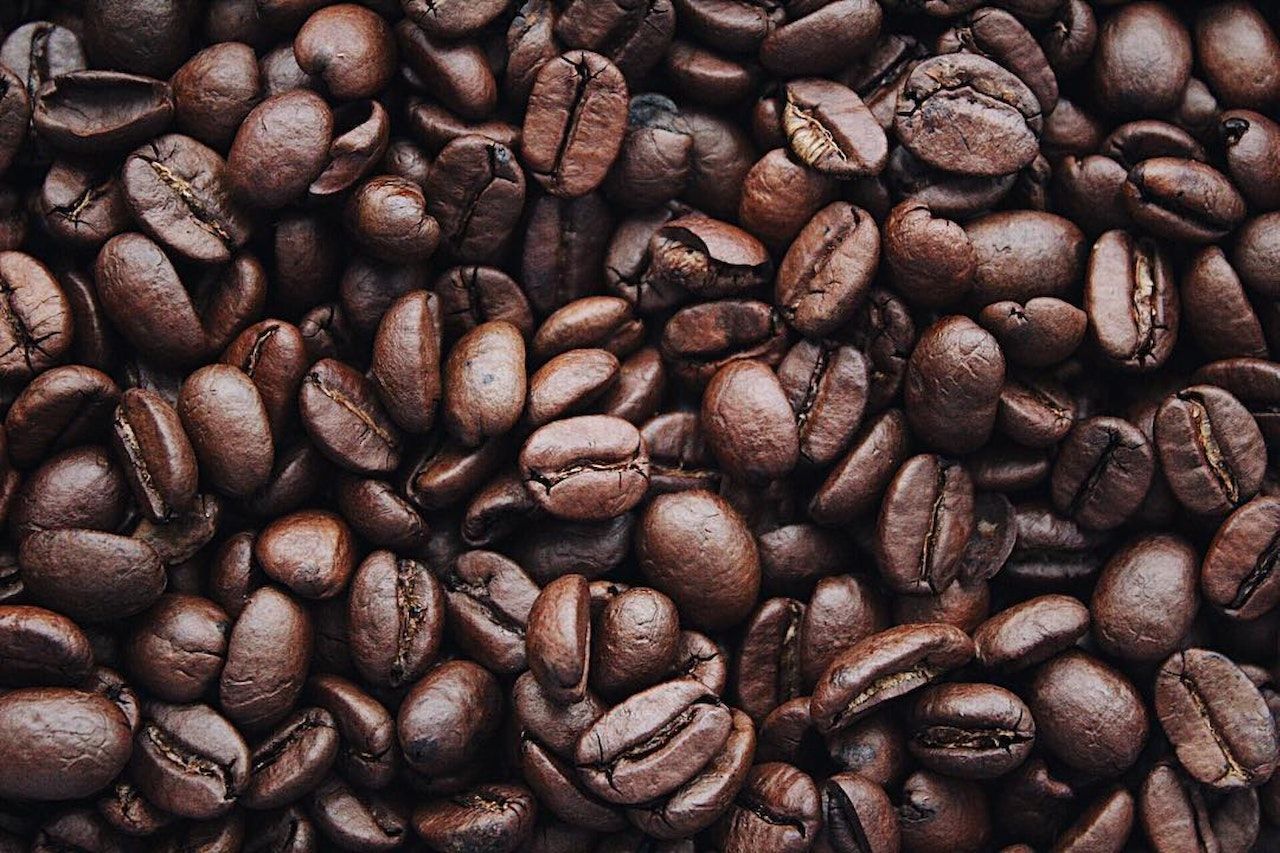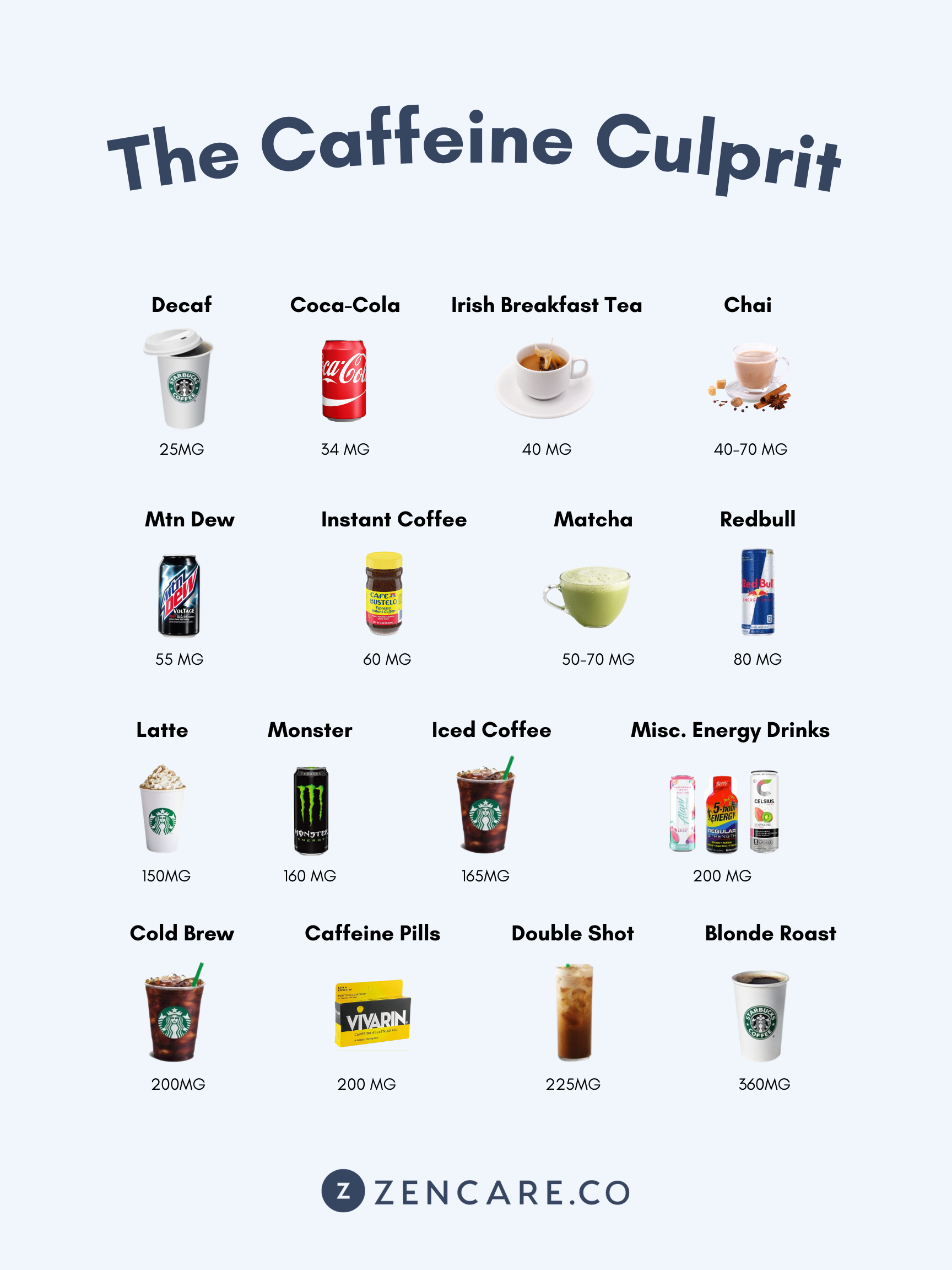[ad_1]
You may have now heard about the link amongst caffeine and anxiousness, and uncovered it to be bewildering. If there is nothing much more comforting than a warm beverage in your preferred mug, how could that be potentially connected to anxiety? Having said that, for some men and women, there is distinct evidence that points to a connection in between caffeine and stress.
Read on to learn if this could be legitimate for you, and if your stress and anxiety may possibly be exacerbated by your consume decisions.

What is stress and anxiety?
Stress and anxiety is an emotion, but it is also the name of a mental wellbeing problem. When someone feels nervous, they may possibly sense listless with anticipation or consumed with their worry. A lot of persons come to feel anxious when they’re ready for a check end result, while they are ready for a textual content from an individual they like, or when they’re touring to a area they have not been ahead of. These thoughts of stress and anxiety are condition-correct, and normally are not bring about for worry.
On the other hand, if these feelings of stress turn into recurrent without having a very clear bring about — or if that induce doesn’t warrant the magnitude of a person’s anxiety response — then this may be the psychological health condition known as nervousness.
Lots of individuals go through from social anxiousness, where they wrestle to come to feel relaxed in social circumstances. Other people have stress just after they’ve skilled traumatic ordeals, which leave them feeling unsafe or in danger. This can final result in put up-traumatic tension disorder (PTSD) or panic assaults.
Prevalent indicators of nervousness include things like restlessness, swift respiratory, nervousness, trembling, experience weak or fatigued, or hassle concentrating. This can effect a person’s ability to try to eat or slumber, which can have have-on consequences on their wellbeing, and they could also experience from gastrointestinal concerns.
Though anxiousness appears to be like various for each and every man or woman, its hallmark is extreme stress, rumination, and dread. It can be a tough and rigorous encounter that can negatively impact a person’s associations, self-esteem, and capability to perform or research.

What is caffeine?
Most men and women affiliate the term “caffeine” with coffee. Nonetheless, caffeine can be found in a variety of beverages and foods, like tea, soda, and chocolate.
Caffeine is a molecule that impacts brain perform, and is deemed harmless to eat in small quantities. It is regarded as a “psychoactive substance” mainly because it variations your brain chemistry. Most persons eat caffeine since it will help them wake up and sense a lot more mentally alert, which occurs since this molecule blocks the chemical generally related with tiredness named adenosine.
What is the connection involving caffeine and stress?
Though there are lots of psychological health positive aspects to paying a aware second drinking a cup of coffee or tea, there is also proof powering the link in between caffeine and nervousness.
Caffeine can result in some of the identical actual physical manifestations of panic, like jitters, an elevated heart price, and racing views. Since our minds and bodies are intertwined, often our minds misinterpret our physical sensations and interpret them as feelings — like stress and anxiety. At its most significant, higher doses of caffeine can result in panic assaults.
Does caffeine cause panic?
It’s challenging to say the specific root lead to of anyone’s panic — it’s a combination of genetics, environmental factors, acquired reactions, and specific tendencies. In general, caffeine doesn’t bring about stress, having said that it can contribute to one’s practical experience of panic.
If you’re not guaranteed no matter if your caffeine practice is impacting your psychological wellbeing, you can try out gradually lowering your use. By lowering your caffeine ingestion, you can measure how significantly it impacts your mental wellness. If you locate on your own sensation a lot less nervous when you consume much less coffee, then there may be a romantic relationship concerning caffeine and your stress.
How a lot caffeine must I be getting?
Anyone reacts to caffeine in another way thanks to dissimilarities in metabolism. Caffeine can also really feel less powerful when eaten with other foods or beverage, so both of those the process and volume of your use can effect how your system reacts.
Ordinary day-to-day consumption
In standard, it is very best to maintain your caffeine ingestion to 400 mg (1), which is the equivalent of 4 cups of coffee for each working day. Nearly anything above 1,200 mg (1) for every working day can be dangerous to your bodily well being. By spreading out your intake, your human body has a chance to metabolize the molecule extra little by little, which can lower some of the additional noticeable indicators of caffeine like shakiness.
Limiting caffeine’s outcomes
You can steer clear of caffeine’s outcomes by limiting your every day caffeine ingestion to a distinct time of the working day, this sort of as steering clear of caffeine following lunch. This can enable prevent thoughts of anxiety into the night, a time all through which you might observe your emotions much more without the need of the distraction of operate or faculty. Note that some prescription drugs can also affect your means to metabolize caffeine if you imagine that could possibly be your knowledge, you can ask your medical professional about potential drug interactions with caffeine.
How substantially caffeine is in coffee?
In one particular cup of espresso, there is around 100 mg of caffeine. Different styles of coffee include various amounts of caffeine. An 8 oz cup of brewed or drip espresso consists of a lot more caffeine than a shot of espresso. Also, decaffeinated, or “decaf” coffee is not caffeine-totally free. A cup of decaf espresso has on normal 2-15mg of caffeine.
With so a lot of unique types of tea, there are varying amounts of caffeine for every cup. Black tea incorporates the most caffeine, with all over 50 mg for each cup, followed by green tea with 25 mg. This is extra than a cup of soda, which ordinarily has all around 40 mg of caffeine.
How do I minimize my caffeine intake?
If you think that your caffeine consumption may possibly be a induce behind your anxiety, it may be in your very best interest to cut down your caffeine consumption. Like all regular routines, it can be challenging to give up cold turkey. The lengthier you expose your system to caffeine, the much more your human body expects it. Some persons expertise signs and symptoms of withdrawal like headaches, trembling, and drowsiness when they consider to prevent fully.
If you’d like to cease consuming caffeine but you’re worried about withdrawal, you might advantage from slowly minimizing your caffeine intake over time, instead than stopping all at when.
How do I regulate caffeine withdrawal?
Ought to you experience physical symptoms of caffeine withdrawal, be client with on your own — it could choose a couple of months for your human body to regulate to its new way of working, just one devoid of caffeine. Maintain in intellect that, ironically, caffeine withdrawal can also trigger stress and anxiety, so be confident to interact in other self-calming techniques to handle your anxiousness as you’re allowing your system adjust.
What are some small caffeine possibilities?
A person of the strategies to decrease your caffeine use is to swap out your cups of coffee or tea for lower caffeine possibilities. Asking for “half-caff” espresso (half a cup of full toughness espresso and half a cup of decaffeinated espresso) can be a handy choice to a entire cup of caffeinated espresso. You might also drink a unique form of tea, like inexperienced tea, which contains considerably less caffeine than coffee or black tea.
How do I handle caffeine withdrawal?
Need to you expertise actual physical indications of caffeine withdrawal, be affected person with you — it might acquire a couple weeks for your body to change to functioning without caffeine. Retain in brain that, ironically, caffeine withdrawal can also result in anxiety, so be sure to interact in other self-comforting procedures to handle your nervousness as you’re permitting your human body alter. If your symptoms persist for a substantial amount of time, you might want to consult with your physician for suggestions on controlling the withdrawal.
How a therapist can help with running stress
Quite a few therapists specialize in aiding people with their nervousness, particularly when their nervousness starts to disrupt their activities of daily lifetime like likely to get the job done, connecting with other individuals, or feeding on and sleeping.
Therapists can assistance you discover the reasons at the rear of your panic. Some of them may possibly be behavioral, like your diet regime and caffeine ingestion, but other folks may well be rooted in childhood activities, relationships, or trauma. By chatting about your life and expressing your thoughts, you might hook up particular reminiscences with present-day thoughts.
If you are on the lookout for a therapist who specializes in dealing with stress, you can filter the Zencare therapist directory by speciality. Glance for a therapist who has working experience in aiding clients with their stress, and view their introductory video to get a perception of their personality or type. At the time you locate a therapist who appears to be what you’re searching for, timetable a totally free session contact to set up your 1st appointment.
References
[ad_2]
Supply connection